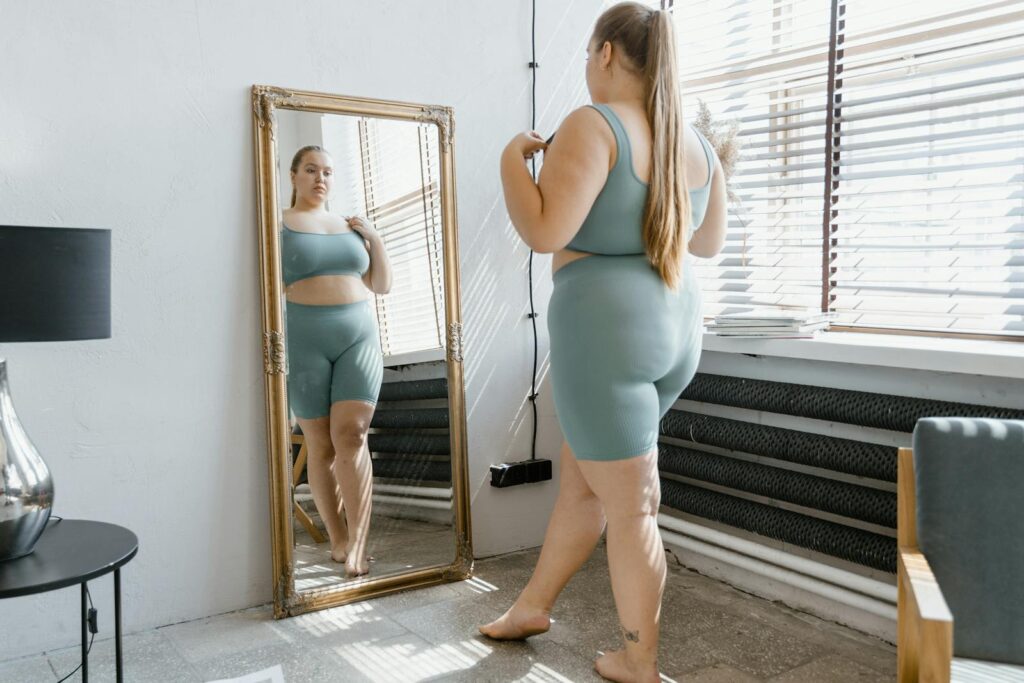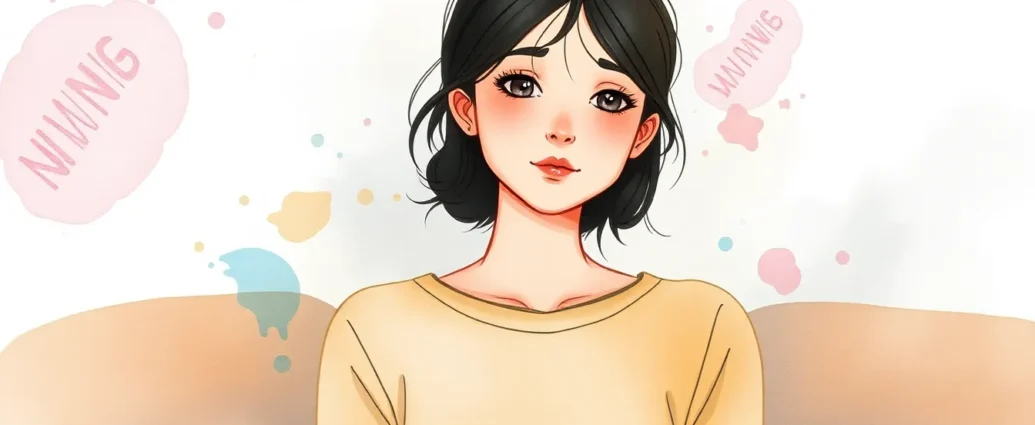When Perfect Isn’t Real: Why Your Teen’s Instagram Feed Is Messing With Their Head
Look, I get it. You’re scrolling through your teenager’s Instagram, and suddenly you’re wondering if you accidentally stumbled into some alternate reality where everyone has flawless skin, impossibly tiny waists, and lives that look like they’re straight out of a magazine. But here’s the thing—that’s exactly what your teen is seeing too, and it’s messing with their head more than you might realize.
The social media effects on teenagers go way deeper than just spending too much time on their phones. We’re talking about a generation that’s growing up comparing their real, unfiltered selves to carefully curated, heavily edited versions of their peers. And honestly? It’s doing some serious damage to how they see themselves.
The Instagram vs. Reality Problem Is Real (And It’s Getting Worse)
Remember when the biggest worry about teenagers was them staying out too late? Yeah, those days are long gone. Now we’re dealing with something much more subtle but potentially more harmful: the constant bombardment of “perfect” images that aren’t actually real.
Here’s what’s happening behind the scenes. Your teen opens Instagram, and they’re immediately hit with photo after photo of people who look flawless. Perfect skin, perfect bodies, perfect lives. What they don’t see is the 47 attempts it took to get that “effortless” selfie, the professional lighting setup, or the heavy-duty editing app that slimmed waists and cleared skin.
The numbers are pretty staggering. Research shows that children and adolescents who spend more than 3 hours a day on social media face double the risk of mental health problems including experiencing symptoms of depression and anxiety. And get this—a recent survey showed that teenagers spend an average of 3.5 hours a day on social media.
But it’s not just about time spent scrolling. It’s about what they’re absorbing during those hours.
Your Teen’s Brain on Edited Photos
Let’s talk about what’s actually happening in your teenager’s brain when they’re consuming all these edited images. It’s not pretty, and it starts earlier than you think.
Research conducted by the Dove Self-Esteem Project in 2020 found that 80 percent of girls have downloaded a filter or used an app to change how they look in photos by age 13. Thirteen. We’re talking about kids who haven’t even finished middle school yet.
The editing isn’t subtle anymore, either. When asked what type of filters they used the most, participants said the most common filters were those used to even out skin tone, brighten skin, whiten teeth, bronze skin, and reduce body size. They’re literally reshaping their faces and bodies with a few taps on their phone.
And here’s where it gets really concerning—94 percent reported feeling pressured to look a particular way, and more than half described that pressure as intense.
The Comparison Trap That Never Ends
The psychological impact is brutal. Your teen isn’t just comparing themselves to celebrities anymore (though that’s still happening). They’re comparing themselves to their edited selfies and their friends’ edited photos. It’s like being stuck in a funhouse mirror maze where every reflection makes you feel worse about yourself.
Instagram vs Reality posts seek to expose the falseness of social media and thereby discourage women from comparing themselves with idealistic and unrealistic images, but the movement, while well-intentioned, is still relatively small compared to the flood of edited content.
The Mental Health Connection You Can’t Ignore
I wish I could tell you this is just about vanity or typical teenage insecurity. But the research is showing some genuinely concerning connections between edited photo consumption and mental health issues.
Studies are finding direct links between heavy photo editing use and increased rates of anxiety and depression. Mental health issues among teens have been rising for more than a decade, and some experts wonder how much social media use is to blame.
The U.S. Surgeon General even issued an advisory about this. In the spring of 2023, United States Surgeon General Vivek Murthy, MD, MBA, released an advisory called Social Media and Youth Mental Health, in which he says there is growing evidence that social media is causing harm to young people’s mental health.
When Filters Become a Crutch
Here’s something that might surprise you: some teens are literally afraid to be seen without filters. Caroline Rocha, a makeup artist and photographer, tells MIT Technology Review that she sees women who won’t be shown filterless. “They refuse to be seen without these filters, because in their mind they think that they look like that,” she says.
Think about that for a second. We have a generation of young people who are so accustomed to seeing edited versions of themselves that they can’t handle their actual reflection.
The Body Image Disaster You’re Probably Missing
Let’s be honest—body image issues have always existed. But social media has turned up the volume to eleven, and the edited photo trend is making everything worse.
Photos and posts on social media are chosen to present and maintain a carefully constructed image of one’s best self. They are frequently enhanced by photo and body-editing program “filters,” making appearance comparisons unattainable and dangerous.
The thing is, teenagers’ brains are still developing. They’re in a stage where peer approval feels like life or death, and they’re trying to figure out who they are. Throw in constant exposure to impossible beauty standards, and you’ve got a recipe for some serious self-esteem issues.
The Snapchat Dysmorphia Phenomenon
There’s actually a term for what’s happening: “Snapchat dysmorphia” or “filter dysmorphia.” Social media comparison and filters on social media cause people to strive for unrealistic standards of beauty, contributing to increases in dysmorphia.
People are literally bringing filtered photos of themselves to plastic surgeons, asking to look more like their edited selfies. That’s how disconnected we’ve become from reality.
What This Means for Sleep, Grades, and Real Relationships
The impact isn’t just about self-esteem (though that’s huge). It’s affecting every aspect of your teen’s life.
Teens are far more likely to say social media hurt rather than help their sleeping habits and productivity, which are both crucial for well-being, according to experts. Four-in-ten or more teens say social media platforms hurt the amount of sleep they get (45%), as well as their productivity (40%).
And it’s getting worse. 45% of teens say they spend too much time on social media in our current survey, up from 36% in 2022.
The social aspect is suffering too. When your teen is spending hours perfecting their online image, that’s time they’re not spending having real conversations, developing actual skills, or building genuine relationships.
The Academic Impact Nobody’s Talking About
About one-in-five teens say social media hurt their mental health (19%) or grades (22%). But I think these numbers are actually conservative. When you’re constantly worried about how you look and how you measure up online, it’s pretty hard to focus on algebra or history class.
The Gender Gap That’s Getting Wider
Here’s something that might not surprise you: this isn’t affecting all teenagers equally. Girls reported higher levels of problematic social media use than boys (13% vs 9%).
Teen girls are more likely than boys to say social media hurt their mental health (25% vs. 14%). The pressure on girls to look perfect has always been intense, but social media has amplified it beyond anything previous generations experienced.
Boys aren’t immune, though. They’re dealing with their own set of pressures around looking muscular, successful, and cool. The difference is that girls tend to internalize the pressure more, leading to higher rates of anxiety and depression.
The Teenage Girl Crisis
Facebook research showed that 6% of girls in the US and 13% of girls in the UK that contemplated suicide said it was driven by Instagram. Additionally, one-third of the girls reported that Instagram made them feel worse about their body image.
Read that again. We’re talking about suicidal thoughts connected to a social media app. This isn’t just typical teenage drama—this is a genuine crisis.
How to Spot the Warning Signs (Before It’s Too Late)
Look, I’m not trying to scare you. But you need to know what to watch for. The signs that social media effects on teenagers are becoming problematic aren’t always obvious.
Here’s what to look out for:
- Your teen refuses to be in photos without filters
- They spend excessive time editing photos before posting
- They talk negatively about their appearance constantly
- Their mood crashes after spending time on social media
- They avoid social situations or activities they used to enjoy
- They’re obsessed with likes, comments, and follower counts
- Sleep patterns are disrupted (staying up late on their phone)
- Grades are dropping without explanation
- They show interest in cosmetic procedures or extreme diets
The Subtle Signs You Might Miss
Sometimes the signs are sneakier. Maybe your teen starts wearing baggy clothes to hide their body. Maybe they stop participating in sports or activities where they might be photographed. Maybe they become obsessed with skincare products or makeup.
Pay attention to how they talk about themselves and others. Are they constantly criticizing appearances? Do they point out “flaws” in photos that you can’t even see?
What You Can Do (And What You Shouldn’t)
Okay, so now you’re probably freaking out a little. That’s normal. But here’s the good news: there are things you can do to help your teenager navigate this mess.
First, let’s talk about what NOT to do. Don’t ban social media completely (unless you want to guarantee your teen will find ways around it). Don’t criticize their appearance or make comments about weight. Don’t dismiss their concerns as “just being dramatic.”
Start With Honest Conversations
It will be easier to talk to your teens about social media if you have comfortable conversations with them about other issues. You can’t just show up one day and expect them to open up about their deepest insecurities.
Talk to them about what they see online. Ask them how certain posts make them feel. Help them understand that most of what they see is carefully curated and edited.
Create Media Literacy Moments
Help your teen develop critical thinking skills about what they see online. When you’re watching TV together or scrolling through social media, point out editing, perfect lighting, or professional makeup. Make it a game to spot the unrealistic elements.
Explain how advertising works, how influencers make money, and why there’s incentive to present an unrealistic image.
Setting Boundaries That Actually Work
Here’s where a lot of parents go wrong: they try to set rules without explaining why. Your teenager needs to understand the reasoning behind boundaries, not just follow them blindly.
As a parent, it’s important to establish clear boundaries and limits with your teen’s social media use. Encourage them to take breaks from social media by engaging in other activities, such as reading or going for a walk.
The One-Hour Rule
Research shows that reducing social media use to about an hour per day can make a significant difference. those who reduced daily social media use reported significantly greater improvements in appearance esteem and weight esteem compared to those who had not reduced their social media use.
But here’s the key: work with your teen to figure out when that hour should be and what platforms matter most to them. Give them some control over the boundaries.
Screen-Free Zones and Times
Create spaces and times where phones aren’t allowed. This might be during meals, in bedrooms at night, or during family time. But make sure these rules apply to everyone in the family, including you.
Both experts interviewed for this article agreed that the best thing parents can do to minimize the risks associated with technology is to curtail their own consumption first.

Building Real-World Confidence
The antidote to social media-induced insecurity isn’t just limiting screen time—it’s helping your teen build confidence in the real world.
Encourage activities that have nothing to do with appearance. Sports, music, art, volunteering, coding—anything that helps them develop skills and see themselves as more than just their looks.
Help them understand that their worth isn’t determined by their appearance or online popularity. This is harder than it sounds because our entire culture reinforces the opposite message.
Celebrating Non-Appearance Achievements
Make a big deal about things that have nothing to do with how they look. Did they help a friend through a tough time? Celebrate that. Did they master a difficult piece of music? That’s worth bragging about. Did they stand up for someone being bullied? That’s the stuff that actually matters.
Teaching Them to Curate Their Feeds
Instead of trying to ban social media, teach your teen to be intentional about what they consume. Help them unfollow accounts that make them feel bad about themselves.
Encourage your teen to follow social media accounts that promote positivity, such as those focused on mental health awareness or inspiring quotes. Help them identify negative accounts or content that may be harmful to their mental health and encourage them to unfollow or block those accounts.
The Follow/Unfollow Audit
Sit down with your teen and go through their following list together. Ask them how different accounts make them feel. If an account consistently makes them feel bad about themselves, it’s time to unfollow.
Encourage them to follow accounts that align with their interests and values, not just accounts with pretty pictures.
When to Seek Professional Help
Sometimes, despite your best efforts, the social media effects on teenagers become too much to handle alone. Here are some signs that it might be time to seek professional help:
- Your teen shows signs of depression or anxiety that interfere with daily life
- They engage in self-harm behaviors
- They express suicidal thoughts
- They develop eating disorders or extreme dieting behaviors
- They become completely isolated from friends and family
- Their academic performance seriously declines
- They show signs of body dysmorphic disorder
If you’re concerned about your teen’s mental health or social media use, don’t hesitate to seek professional help. A mental health professional can provide guidance and support for both you and your teen.
Finding the Right Professional
Look for therapists who specialize in adolescents and have experience with social media-related issues. Many therapists now understand the unique challenges that come with growing up in the digital age.
Don’t wait until things get really bad. Early intervention is always better.
The Reality Check Your Teen Needs
Here’s something you can share with your teenager: everyone feels insecure sometimes. Everyone has parts of their body they wish were different. Everyone takes bad photos and has awkward moments.
The difference is that previous generations didn’t have to document every moment and compare themselves to thousands of edited images every day.
Help them understand that the people posting those perfect photos are also dealing with insecurities, bad days, and real-life problems. The edited photos don’t show the full picture.
Embracing Imperfection
There’s something powerful about embracing imperfection in a world that’s obsessed with perfection. Help your teenager understand that their “flaws” are what make them human and interesting.
Show them examples of people who are successful, happy, and fulfilled without being conventionally beautiful. Help them expand their definition of what it means to be valuable as a person.
Creating a Family Culture That Values Real Over Perfect
The most important thing you can do is create a family culture that values authenticity over perfection. This starts with how you talk about yourself and others.
Stop criticizing your own appearance in front of your kids. Stop commenting on other people’s looks. Focus conversations on character, achievements, and relationships rather than appearances.
Model Healthy Social Media Use
As a parent, it’s important to model healthy social media use for your teen. If you’re constantly on your phone, editing your own photos, or comparing yourself to others online, your teen is watching and learning.
Show them what it looks like to use social media intentionally, to take breaks from it, and to prioritize real-world relationships over online validation.
The Bigger Picture (And Why This Matters So Much)
The social media effects on teenagers aren’t just about individual kids struggling with self-esteem. We’re literally reshaping an entire generation’s understanding of reality, beauty, and self-worth.
New data from the WHO Regional Office for Europe reveals a sharp rise in problematic social media use among adolescents, with rates increasing from 7% in 2018 to 11% in 2022. This is a global issue that’s getting worse, not better.
But here’s what gives me hope: awareness is growing. More parents are recognizing the problem. More teenagers are speaking up about the pressure they feel. More platforms are (slowly) implementing features to promote healthier usage.
The Change That’s Already Happening
Some social media platforms are starting to hide like counts or add warnings to heavily edited content. There’s a growing movement of influencers posting unfiltered, real photos. Some celebrities are speaking out about their own struggles with social media pressure.
Your teenager is part of a generation that has the power to change this. They can choose to be part of the solution by being authentic online, supporting friends who post real photos, and refusing to participate in the comparison game.
Quick Takeaways for Busy Parents
If you’re feeling overwhelmed by all this information, here are the essential points to remember:
Social media isn’t inherently evil, but the way many teenagers use it is problematic. The constant exposure to edited, perfect images is damaging their self-esteem and mental health. Girls are especially vulnerable, but boys are affected too. The impact goes beyond appearance issues—it’s affecting sleep, grades, and real relationships.
You can’t solve this by banning social media, but you can help by having honest conversations, setting reasonable boundaries, modeling healthy behavior, and teaching critical thinking skills. Most importantly, help your teenager build confidence and identity beyond their appearance.
Watch for warning signs and don’t hesitate to seek professional help if needed. This is a real issue with real consequences, but it’s not hopeless.
Where Do We Go From Here?
Look, I’m not going to end this by pretending there’s some magical solution that will fix everything overnight. The social media effects on teenagers are complex, and they’re deeply embedded in our culture now.
But here’s what I know: teenagers are resilient. They’re smart. And when they have supportive adults who understand what they’re going through, they can learn to navigate this digital world in healthier ways.
The goal isn’t to raise teenagers who never struggle with self-doubt or comparison—that’s not realistic. The goal is to raise teenagers who understand that their worth isn’t determined by likes, followers, or how they look in photos.
Maybe the most radical thing we can teach our teenagers is that they’re enough, exactly as they are, without any filters or editing required. In a world that’s constantly telling them they need to be different, better, more perfect, that message might just be revolutionary.
And maybe, just maybe, they’ll be the generation that finally breaks the cycle and teaches the rest of us how to live authentically in a digital world.
Frequently Asked Questions
How do I know if my teenager’s social media use is becoming problematic? Watch for changes in mood after social media use, obsession with appearance, reluctance to be in unfiltered photos, disrupted sleep patterns, declining grades, and social withdrawal. If your teen seems increasingly anxious, depressed, or critical of their appearance, it’s time to intervene.
Should I ban Instagram and TikTok completely? Complete bans often backfire and can damage trust with your teenager. Instead, focus on setting reasonable limits, teaching critical media literacy, and having ongoing conversations about what they see online. Work together to create boundaries that feel collaborative rather than punitive.
My teen uses filters on every photo they post. Is this normal? While filter use is extremely common among teenagers, using them compulsively or refusing to be seen without them is concerning. Help your teen understand that filters create unrealistic beauty standards and encourage them to post some unfiltered photos to build comfort with their natural appearance.
What age should I start talking to my child about edited photos and social media pressure? Start early—research shows many kids begin using appearance-editing apps by age 13. Begin age-appropriate conversations about media literacy around 10-11 years old, explaining that photos online are often edited and don’t show reality.
How can I build my teenager’s self-esteem when they’re constantly comparing themselves to others online? Focus on celebrating achievements and qualities that have nothing to do with appearance. Encourage activities that build skills and confidence, limit social media comparison time, and help them curate feeds with positive, diverse content. Model self-acceptance and avoid appearance-focused comments.
Is it normal for teenagers to want cosmetic procedures because of social media? While curiosity about cosmetic procedures has increased due to social media exposure, teens requesting surgery to look like their filtered selves is concerning. This may indicate body dysmorphic issues and warrants professional consultation with a therapist who understands social media’s impact.
What should I do if I think my teen has body dysmorphic disorder from social media use? Body dysmorphic disorder is a serious mental health condition requiring professional treatment. If your teen is obsessed with perceived flaws, avoids social situations, or expresses distress about their appearance that interferes with daily life, consult a mental health professional immediately.



